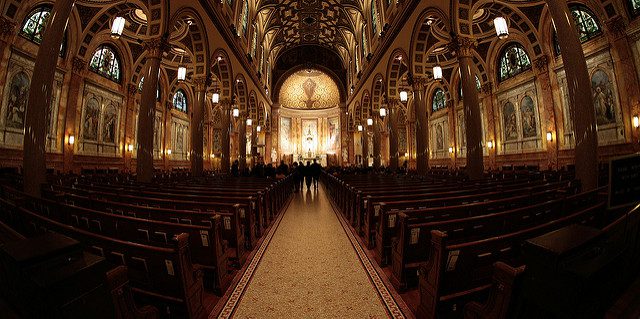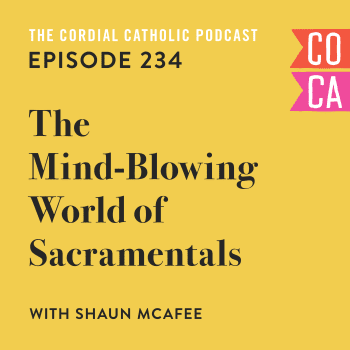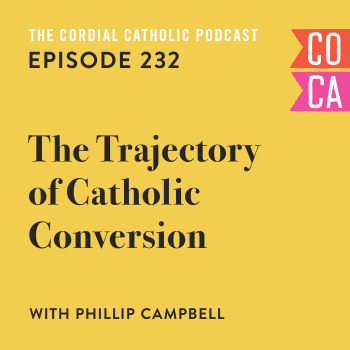
One of the incredible gifts of becoming a Catholic is knowing that my theology, what I believe, has been figured out by people much smarter than I am over thousands of years.
And, if you believe in what the Church says it is this has been accomplished through the divine assurance of the Holy Spirit. That the Church can’t get it wrong is a promise of Jesus.
This has been a huge weight off my shoulders.
When I try to explain to my Evangelical, non-denominational friends expressing this feeling has always been a bit of a challenge. As Evangelical Christians we often pick and choose our belief system based on what we think the best and most accurate interpretation of Scripture is. We gravitate towards church communities, theologians, and bloggers who most closely reflect what our interpretation of Jesus is; and who most embodies what we think a Christian looks like.
When a certain style of worship, a certain set of beliefs, or a certain group of people no longer reflect our ideal image of a church we simply plant a new one. And, more and more, this is far too often the case.
And I don’t for a second mean to sound disparaging. This is the ecosystem that raised me in the Christ, after all, but it’s killing Christianity. Because we can’t possibly figure it all out and, as is obvious from a cursory glance about the Christian landscape, we’re not doing a good job at it either.
It’s unabashedly me-centric, too.
Becoming Catholic made me humble, or at least more humble… or slightly more humble depending on who you ask.
It did, in the least, force me to the realization that something other than me knows best.
That I don’t have all the theological answers. I don’t know exactly what the Bible means when it talks about sin or grace or fornication. I don’t know if Paul was speaking culturally, theologically, or off-the-cuff when he condemned this or that; when he wrote about problems and successes in his church communities. I don’t understand precisely how Jesus’ sacrifice on the cross unlocks for humanity the great big heavenly doors—and, what’s more, I don’t need to.
I don’t need to have all my theology sorted out or my favourite theologians picked or the answer to every pressing and prescient question in the world. I can rely, instead, on the incredible cushion of grace that is the teaching of the Church. A robust and seamless teaching that does have an answer if I need to go and look.
It’s wholly counter-cultural, I know, and that’s certainly part of the appeal.
That I can trust the Church and not my own wherewithal to figure things out. This is huge.
Because let’s face it: I don’t know best, none of us do, so doesn’t it make sense that God would’ve left us more than ourselves to figure out how to live? And if our lives are meant to be lived in humble obedience to our Lord and King wouldn’t he have established a system that teaches humility as a cornerstone?
To me, and those that have come before, this only makes sense.
Because I don’t know best, but thank God the Church does.












